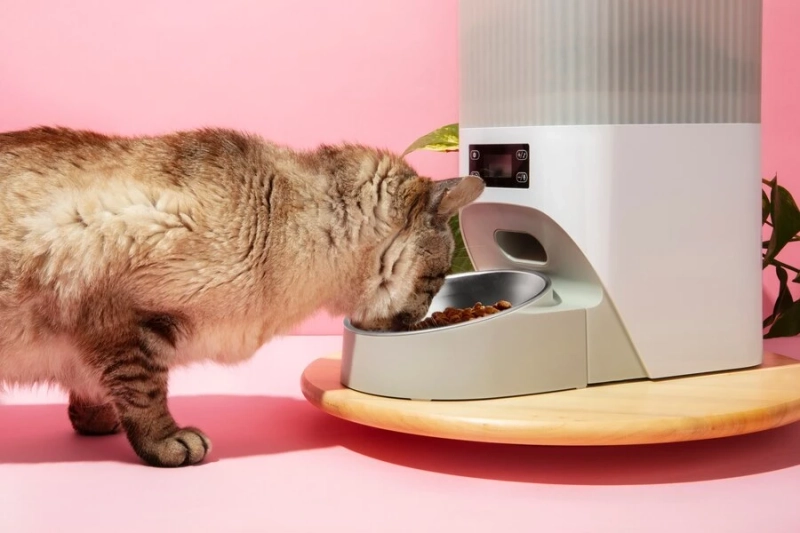Pets bring so much joy to our lives. They play, cuddle, and keep us company. But to stay active and healthy, they need the right food. Protein plays a big part in this. It helps with energy and overall well-being. Many pet owners wonder about protein. Is it enough? What kind does my pet need? This article explains it all. We will cover benefits, sources, and tips. Let's help your pet live their best life.
What is Protein?
Protein is a key nutrient. It comes from food like meat or plants. Your pet's body breaks it down into amino acids. These are building blocks. Pets can't make all amino acids themselves. They must get them from meals. Dogs and cats need protein most. It keeps them strong.
How Protein Boosts Energy
Energy keeps pets moving. Protein helps here. It provides calories for fuel. When carbs and fats run low, protein steps in. This is great for active pets. Think of a dog chasing a ball. Or a cat jumping high. Muscles need protein to work well.
Protein builds and fixes muscles. Strong muscles mean more playtime. Without enough, pets tire fast. They might seem lazy. Good protein levels keep energy up all day. Puppies and kittens use it for growth spurts. Adults need it for daily fun.
Studies show protein aids endurance. For example, working dogs perform better with high protein. The same goes for cats. They hunt by nature. Protein supports quick bursts of speed.
Protein's Role in Vitality
Vitality means good health overall. Protein helps in many ways. It repairs tissues after play or injury. This keeps pets agile. It also makes enzymes and hormones. These control body functions.
A strong immune system fights illness. Protein builds antibodies. This protects against colds or bugs. Healthy skin and fur come from protein too. Keratin is a protein in hair and nails. Shiny coats show good nutrition.
As pets age, protein prevents muscle loss. Seniors stay vital longer. It even helps with weight control. Protein makes pets feel full. This stops overeating. Less obesity means more vitality.
Best Sources of Protein for Pets
Quality matters. Animal sources are top. Think chicken, beef, turkey, or fish. These give complete amino acids. Eggs and dairy work too. Plant sources like beans help but are not as good alone.
Look at labels. Meat should be first. Avoid by-products or fillers. These are low quality. Raw or fresh options keep nutrients intact. Cooked is fine too.
For cats, try wet cat food. It has high protein and moisture. Dogs like kibble with meat chunks. In places like Saudi Arabia, find dry cat food Riyadh for local options. Always pick trusted brands.
Protein Needs for Dogs and Cats
Needs vary by pet. Dogs are omnivores. They handle some plants. Cats are carnivores. They need more animal protein.
Puppies need 22-32% protein. It fuels growth. Adult dogs do well on 18-25%. Active ones may want more. Seniors benefit from 25-30% to keep muscles.
Kittens require 30% or higher. Adult cats need at least 26%. Check AAFCO labels. These ensure balance.
Size matters too. Big dogs might need less per pound. Small ones burn energy fast. Talk to a vet for exact amounts.
Signs Your Pet Needs More Protein
Watch for clues. Low energy is a red flag. If your pet sleeps a lot, check diet. Dull fur or shedding means issues. Slow healing from cuts points to low protein.
Weight loss without reason is bad. Muscle waste makes pets weak. Frequent illnesses show weak immunity. Adjust food if you see these.
Tips to Add Protein Right
Start with balanced meals. Mix dry and wet for variety. This keeps pets interested. Feed at set times. Measure portions to avoid extras.
Add treats wisely. Use protein-rich ones. Limit to 10% of calories. Supplements help if needed. But food is best.
Rotate proteins. Try fish one week, chicken next. This prevents allergies. Always change slowly. Upset stomachs happen with quick switches.
Hydrate well. Protein works better with water. Use fountains for picky drinkers.
Consult pros. Vets know your pet's needs. They spot health ties to diet.
Common Myths About Protein
Myth one: Too much protein hurts kidneys. Not true for healthy pets. Excess gets used for energy.
Myth two: Plants provide enough. Cats need animal sources most. Dogs can mix but prefer meat.
Myth three: All proteins are equal. Quality counts. Whole meats beat meals or by-products.
Myth four: Puppies need less. No, they need more for growth.
Why Balance Matters
Protein is key but not alone. Add fats, carbs, vitamins. A full diet keeps everything in check. Too little protein harms. Too much wastes money. Find the sweet spot.
Good food saves vet trips. Healthy pets cost less long-term. Invest in quality now.
Conclusion: Fuel Your Pet's Best Life
Protein powers energy and vitality. It builds strength and health. Choose good sources. Meet your pet's needs. Watch for signs and adjust.
Your furry friend deserves it. With right protein, they play more. They stay happy. Thank you for caring. Make changes today for a brighter tomorrow.



